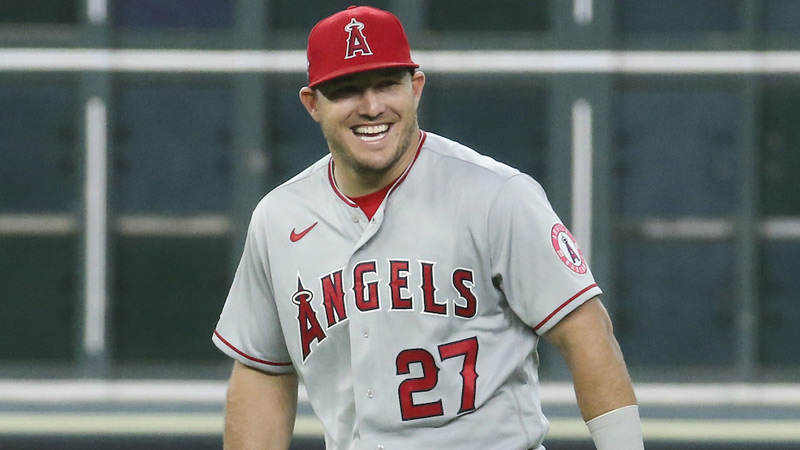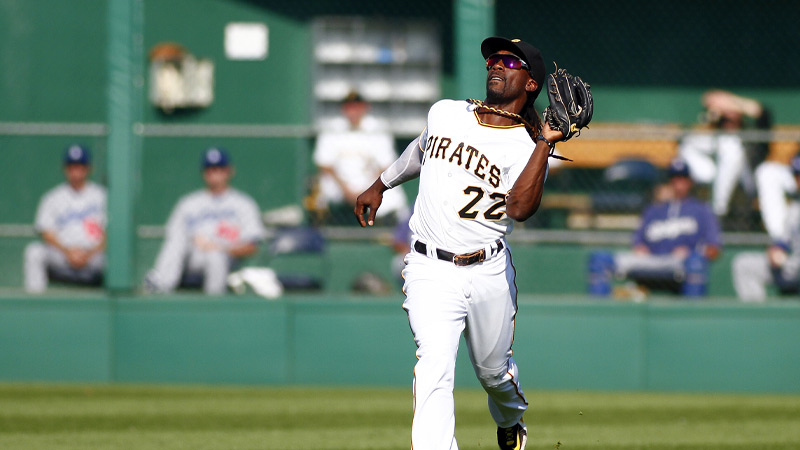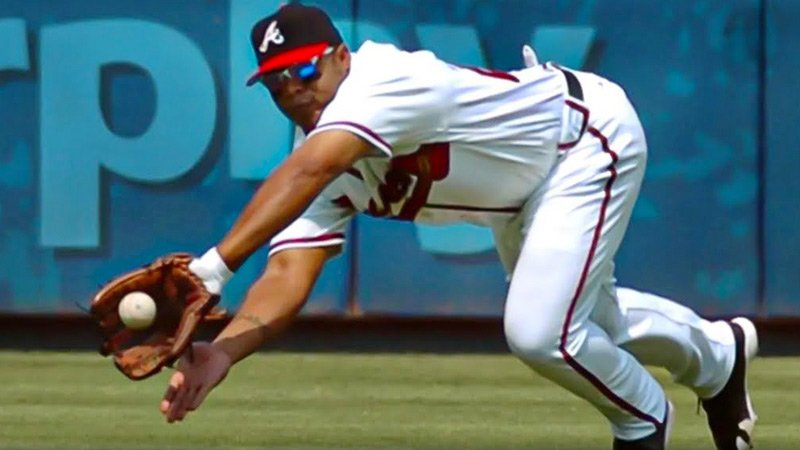In the game of baseball, each player’s role on the field is crucial in contributing to the team’s success. One of the key positions that hold immense significance is that of the center fielder.
This dynamic player is often regarded as the “captain” of the outfield, responsible for patrolling the vast expanse between the left and right fielders.
The center fielder’s exceptional defensive skills, leadership qualities, and offensive contributions make them an indispensable asset to any team.
In this blog post, we will delve into the role and responsibilities of a center fielder, exploring the various skills they possess and the impact they have on the game.
What Is the Position of A Center Fielder in Baseball?
The center fielder in baseball plays a pivotal defensive role in the outfield, positioned between the left and right fielders. They are responsible for covering the vast expanse of outfield grass, making them crucial in catching fly balls and line drives.
As the “captain” of the outfield, they often call for fly balls to avoid collisions with other fielders. The center fielder needs exceptional speed, agility, and an accurate arm to execute plays effectively.
Their primary goal is to prevent extra-base hits and turn potential home runs into outs by making spectacular catches at the wall. Additionally, they support the other outfielders and act as the cutoff man during throws from the infield.
Offensively, center fielders are often key hitters in the lineup, providing both power and speed on the basepaths.
Types of Center Fielders in Baseball

Source: fangraphs.com
In baseball, center fielders come in various types, each distinguished by their playing style, strengths, and skills. Here are some of the common types of center fielders:
Speedsters
These center fielders possess exceptional speed and agility, making them quick to react to balls hit into the outfield. They cover ground efficiently, allowing them to chase down fly balls and line drives that other outfielders might struggle to reach. Speedsters are often known for stealing bases and being dynamic base runners.
Power Hitters
Some center fielders are known for their impressive power at the plate. They can hit the ball deep into the outfield or even over the fence for home runs. While they may not have the same speed as other types of center fielders, their ability to drive in runs with their hitting prowess makes them valuable assets to the team.
Defensive Specialists
These center fielders prioritize their defensive abilities, excelling in tracking down difficult fly balls and making spectacular catches. They have a keen understanding of reading batted balls off the bat, allowing them to get excellent jumps and positioning. Defensive specialists often have a high fielding percentage and make few errors.
All-Around Talents
Some center fielders combine a mix of skills, showcasing both solid offensive and defensive capabilities. They are versatile players who can hit for average, possess good power, and showcase exceptional defense. These all-around talents are often considered the most valuable center fielders.
Arm Strength
A few center fielders stand out for their powerful throwing arms. They can make strong and accurate throws to the infield, deterring baserunners from taking extra bases. Their arm strength is an essential asset in preventing runners from advancing on the basepaths and turning potential hits into outs.
Five-Tool Players
The rarest and most coveted type of center fielders are the “five-tool” players. These athletes possess all the key skills a baseball player could wish for hitting for average, hitting for power, speed, defense, and arm strength. They are true all-around talents and often become superstars of the game.
The type of center fielder a team prefers depends on their overall strategy and the specific needs of the roster. Some teams may prioritize defense and speed, while others may look for power hitters who can drive in runs.
Regardless of their type, center fielders play a critical role in the success of their teams and contribute significantly to both the offensive and defensive aspects of the game.
What Does the Center Fielder Do?

Source: bleacherreport.com
The center fielder in baseball has several important responsibilities on both defense and offense:
Defense
The primary role of the center fielder is to cover the central portion of the outfield. They are positioned between the left and right fielders. The center fielder is responsible for tracking down and catching fly balls, line drives, and deep hits to the outfield.
They must have excellent speed, agility, and a strong ability to read the trajectory of batted balls to make successful plays.
Communication and Leadership
The center fielder acts as the “captain” of the outfield. They are often responsible for calling out plays and coordinating the movements of the outfielders. They communicate with the other outfielders to avoid collisions and ensure efficient coverage of the outfield.
Cutoff and Relay Throws
When a ball is hit to the outfield, the center fielder may be involved in the cutoff and relay throws. They play a crucial role in getting the ball back to the infield quickly and accurately to prevent runners from advancing to extra bases.
Preventing Extra-Base Hits
Center fielders are vital in preventing extra-base hits, such as doubles and triples. With their speed and range, they can reach balls hit deep into the gaps and prevent hitters from turning long hits into multi-base opportunities.
Backing Up Other Fielders
The center fielder serves as a backup for the corner outfielders (left and right fielders). If a ball gets past the corner outfielders or they make a throw to a base, the center fielder positions themselves behind to ensure there are no defensive lapses.
Offense
Center fielders also contribute to the team’s offense. They are typically positioned near the top of the batting lineup due to their speed and hitting ability.
A strong center fielder can be a threat on the basepaths, stealing bases, and putting pressure on the opposing defense. They are also expected to be productive hitters, capable of getting on base, hitting for average, and driving in runs.
The center fielder’s versatility and athleticism make them crucial components of a successful baseball team. They play a central role in both preventing runs on defense and generating offense on the other side of the game.
Basic Skills of a Center Fielder
A center fielder in baseball requires a diverse set of skills to excel at their position. Some of the basic skills essential for a center fielder include:
Speed and Agility
Center fielders need to cover a large area in the outfield quickly, so speed and agility are paramount. They must have the ability to react swiftly to batted balls and take efficient routes to reach them.
Fielding and Catching
Center fielders must be proficient at fielding ground balls and catching fly balls and line drives. They should have good hand-eye coordination and a soft glove to make clean catches.
Throwing Arm
While not as critical as the corner outfielders, a center fielder still needs a strong and accurate throwing arm. They must be able to make long, on-target throws to the infield, preventing runners from advancing.
Communication
Center fielders act as leaders in the outfield, coordinating with other fielders to avoid collisions and ensure proper coverage. Effective communication is crucial for successful outfield play.
Reading Batted Balls
Center fielders must quickly assess the trajectory and speed of batted balls off the bat to position themselves optimally for a catch or play.
Awareness of the Game Situation
Understanding the game situation is essential for a center fielder. They need to know the score, the number of outs, the base runner’s speed, and other factors to make informed decisions.
Backing Up Other Fielders
A good center fielder knows when and where to back up the corner outfielders and infielders to support their teammates in case of errors or extra-base hit attempts.
Base Running Skills
Center fielders often bat near the top of the lineup, and their base running can impact the game. They should have good base-stealing abilities, know when to take an extra base, and be a smart and aggressive runner.
Hitting Ability
While defense is paramount, a center fielder is expected to contribute offensively as well. They should have solid hitting mechanics, be able to get on base, hit for average, and occasionally provide extra-base power.
Focus and Concentration
A center fielder needs to stay focused throughout the game as they may face challenging situations, such as tracking high fly balls or sprinting to make diving catches.
Combining these fundamental skills makes a center fielder a valuable asset to their team, as they play a vital role in preventing runs, making critical defensive plays, and contributing to the team’s offensive success.
Significance of Center Fielders in Baseball
Center fielders hold immense significance in baseball due to their critical role in both defense and offense. Here are some key reasons why center fielders are vital to the success of a baseball team:
Defensive Anchors
Center fielders cover a large area of the outfield, and their ability to track down fly balls and line drives is crucial in preventing extra-base hits and potential home runs. Their speed and range allow them to make spectacular catches and turn challenging plays into routine outs.
Leadership and Communication
Center fielders act as the leaders of the outfield. They are responsible for communicating with other fielders, calling for fly balls, and coordinating defensive positioning. Effective communication helps avoid collisions and ensures efficient coverage of the outfield.
Cutoff and Relay Throws
Center fielders are often involved in cutoff plays and relay throws. Their accurate arm and quick decision-making skills help them get the ball back to the infield quickly, limiting the advancement of baserunners.
Run Prevention
A strong center fielder’s defensive prowess can prevent runs from being scored by denying hitters extra-base hits and cutting off runners attempting to stretch hits into multiple bases.
Versatility and Flexibility
Center fielders are typically well-rounded players with a mix of offensive and defensive skills. Their ability to contribute to various aspects of the game makes them valuable assets to their teams.
Team Momentum
A spectacular defensive play or a crucial hit by the center fielder can swing the momentum of the game in favor of the team. Their contributions on the field can energize teammates and fans alike.
Field General
Center fielders have an excellent view of the entire field and can see potential plays developing. They often direct other players on where to position themselves based on the batter’s tendencies or the game situation.
Base Running Threat
As often top-of-the-order hitters, center fielders are typically fast and skilled base runners. Their ability to steal bases and take extra bases on hits adds another dimension to the team’s offense.
Turning Defense into Offense
When center fielders make big defensive plays, like robbing a home run, it can have a demoralizing effect on the opposing team. Such plays can also shift the momentum and ignite their team’s offense.
Center fielders are dynamic players who impact the game on multiple levels. Their defensive excellence, leadership qualities, offensive contributions, and base-running skills make them indispensable assets that can significantly influence the outcome of a baseball game.
The Best MLB Center Fielder of All Time
Here is a table showing the best MLB center fielders in baseball history.
| Rank | Player | Team(s) | Years Active | Career Achievements and Awards |
| 1 | Willie Mays | New York/San Francisco Giants | 1951–1973 | 24x All-Star, 2x NL MVP, 12x Gold Glove, 660 HR, 3,283 Hits |
| 2 | Mickey Mantle | New York Yankees | 1951–1968 | 20x All-Star, 3x AL MVP, 536 HR, 2,415 Hits |
| 3 | Ken Griffey Jr. | Seattle Mariners, Cincinnati Reds | 1989–2010 | 13x All-Star, 10x Gold Glove, 630 HR, 2,781 Hits |
| 4 | Tris Speaker | Boston Red Sox, Cleveland Indians | 1907–1928 | 3x World Series Champion, 7x AL Batting Champion, 3,514 Hits |
| 5 | Joe DiMaggio | New York Yankees | 1936–1951 | 13x All-Star, 9x World Series Champion, 3x AL MVP, 361 HR |
| 6 | Ty Cobb | Detroit Tigers | 1905–1928 | 12x AL Batting Champion, 4,189 Hits, .366 Career Avg. |
| 7 | Andruw Jones | Atlanta Braves, others | 1996–2012 | 10x Gold Glove, 434 HR, 1,933 Hits |
| 8 | Mike Trout | Los Angeles Angels | 2011–Present | 3x AL MVP, 8x All-Star, 305 HR, 201 SB, .305 Avg. |
| 9 | Carlos Beltrán | Kansas City Royals, others | 1998–2017 | 9x All-Star, 3x Gold Glove, 435 HR, 2,725 Hits |
| 10 | Duke Snider | Brooklyn/Los Angeles Dodgers | 1947–1964 | 8x All-Star, 2x World Series Champion, 407 HR, 2,116 Hits |
This table is subjective and represents just a selection of some of the best center fielders in MLB history. The ranking and players listed may vary depending on individual opinions and different eras of baseball.
Each of these players had a significant impact on the game and contributed greatly to the position’s legacy in Major League Baseball.
FAQs
What does a center fielder do in baseball?
A center fielder in baseball plays a pivotal defensive role, positioned in the center of the outfield. They are responsible for tracking down fly balls, line drives, and deep hits to the outfield, using their speed and agility to make spectacular catches.
Offensively, center fielders are typically placed near the top of the batting lineup, providing a mix of hitting and base-running skills.
What are the essential skills of a center fielder?
The basic skills of a center fielder include speed and agility, excellent fielding and catching abilities, a strong throwing arm, effective communication, and the ability to read batted balls off the bat.
A center fielder should also possess a good understanding of the game situation to make informed decisions on the field.
How does a center fielder communicate with other players on the field?
Communication is crucial for a center fielder, especially when coordinating with other outfielders and the infield. They call for fly balls to avoid collisions, direct cutoff and relay throws, and position other fielders based on the batter and game situation.
What makes a center fielder essential to the team’s defense?
Center fielders cover a vast amount of outfield territory, making them instrumental in preventing extra-base hits and turning potential home runs into outs. Their ability to make timely and accurate plays significantly impacts the team’s run prevention.
How does a center fielder contribute offensively?
A center fielder’s offensive contributions are just as important as their defensive skills. They often bat near the top of the lineup and are expected to get on base, hit for average, and provide both power and speed on the basepaths. Their ability to steal bases and score runs adds an extra dimension to the team’s offensive strategy.
Bottom Line
The center fielder’s role in baseball goes far beyond merely catching fly balls. They serve as the backbone of the outfield, leading the defensive efforts and communicating effectively with other players.
Their combination of defensive excellence, offensive prowess, leadership qualities, and base-running skills makes them indispensable assets to any team.
Whether it’s making a diving catch at the wall or igniting the offense with a timely hit, the center fielder’s impact on the game is undeniable, solidifying their position as one of the most exciting and vital players in the sport of baseball.







